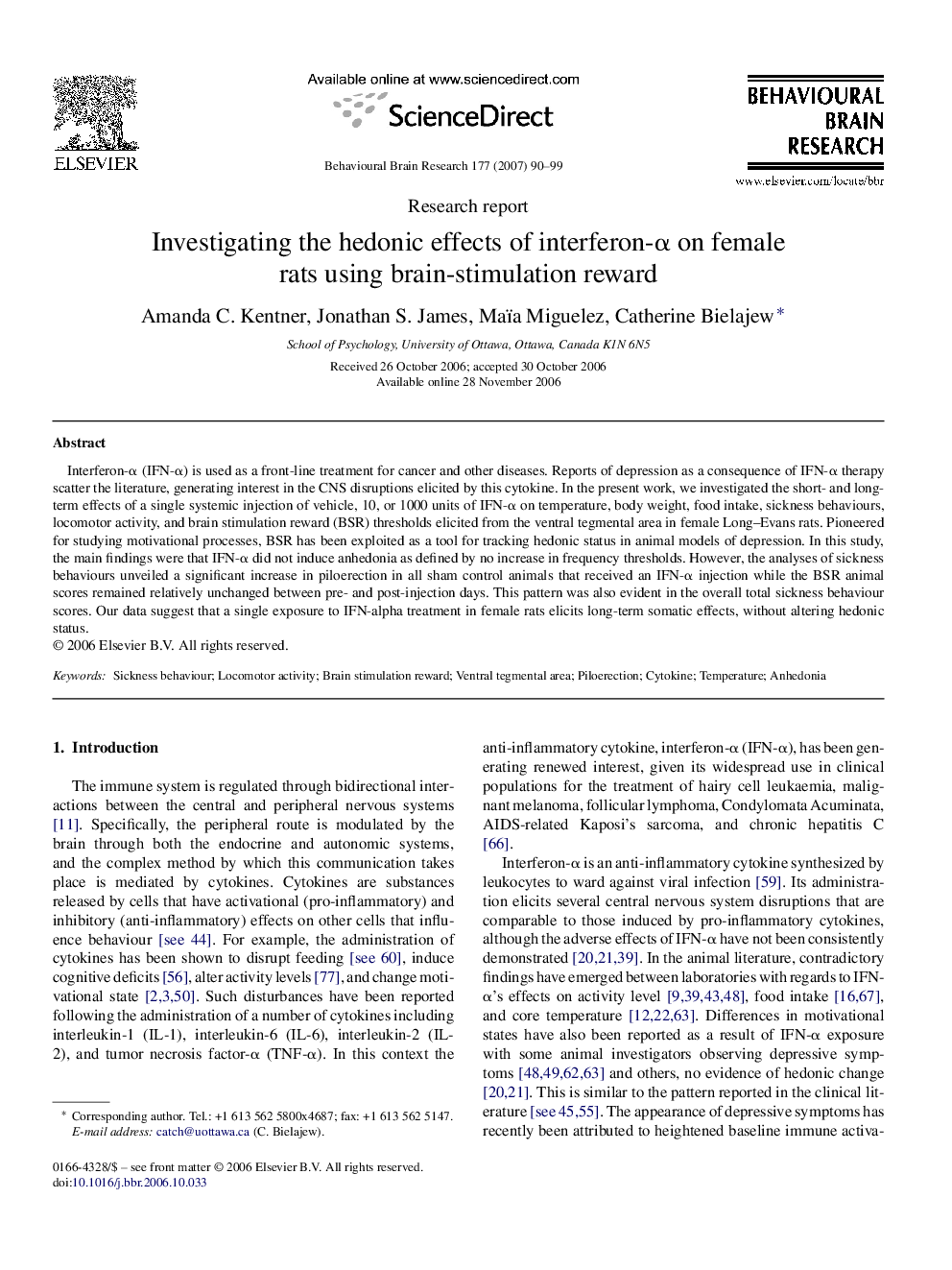| Article ID | Journal | Published Year | Pages | File Type |
|---|---|---|---|---|
| 4315722 | Behavioural Brain Research | 2007 | 10 Pages |
Abstract
Interferon-α (IFN-α) is used as a front-line treatment for cancer and other diseases. Reports of depression as a consequence of IFN-α therapy scatter the literature, generating interest in the CNS disruptions elicited by this cytokine. In the present work, we investigated the short- and long-term effects of a single systemic injection of vehicle, 10, or 1000 units of IFN-α on temperature, body weight, food intake, sickness behaviours, locomotor activity, and brain stimulation reward (BSR) thresholds elicited from the ventral tegmental area in female Long-Evans rats. Pioneered for studying motivational processes, BSR has been exploited as a tool for tracking hedonic status in animal models of depression. In this study, the main findings were that IFN-α did not induce anhedonia as defined by no increase in frequency thresholds. However, the analyses of sickness behaviours unveiled a significant increase in piloerection in all sham control animals that received an IFN-α injection while the BSR animal scores remained relatively unchanged between pre- and post-injection days. This pattern was also evident in the overall total sickness behaviour scores. Our data suggest that a single exposure to IFN-alpha treatment in female rats elicits long-term somatic effects, without altering hedonic status.
Keywords
Related Topics
Life Sciences
Neuroscience
Behavioral Neuroscience
Authors
Amanda C. Kentner, Jonathan S. James, Maïa Miguelez, Catherine Bielajew,
